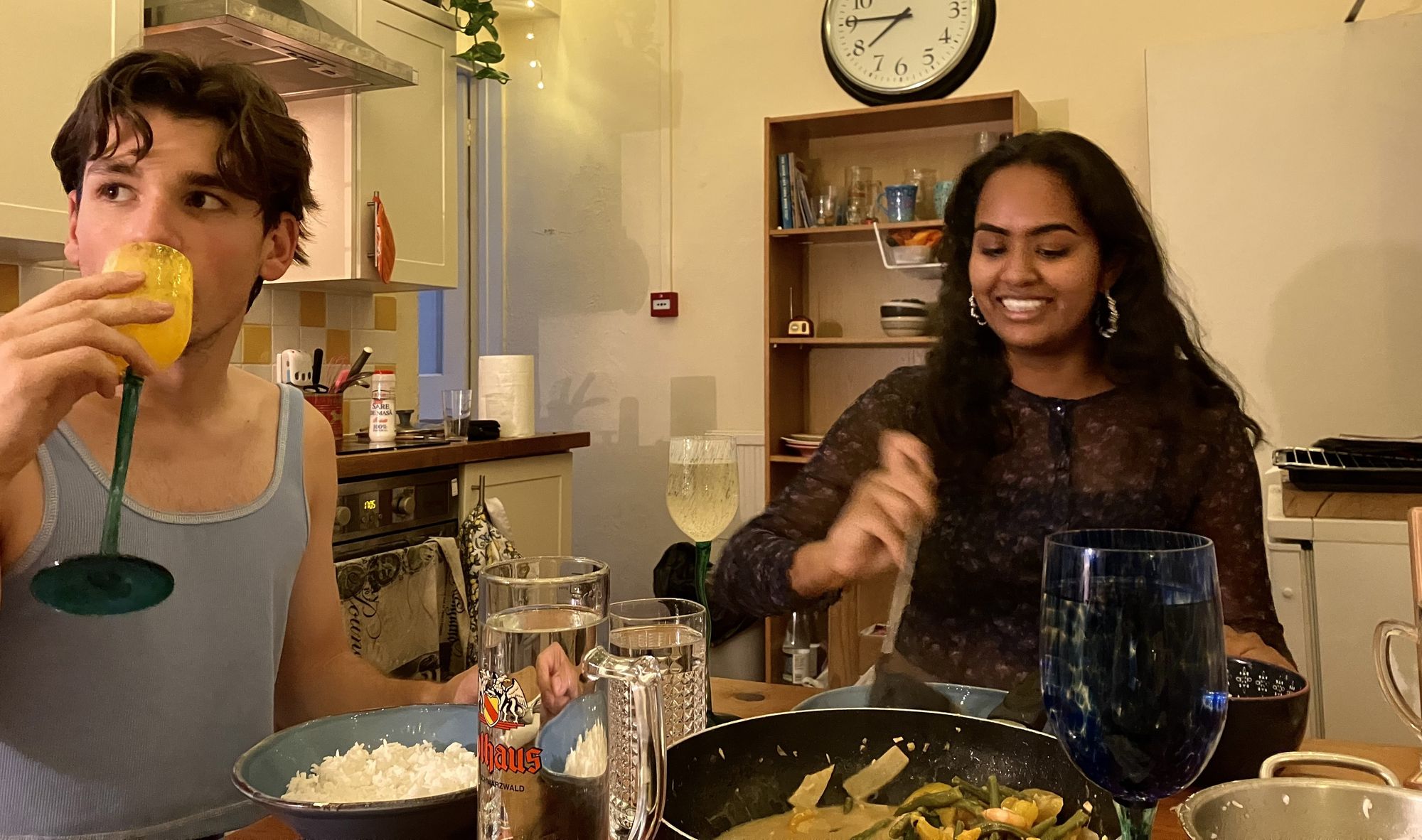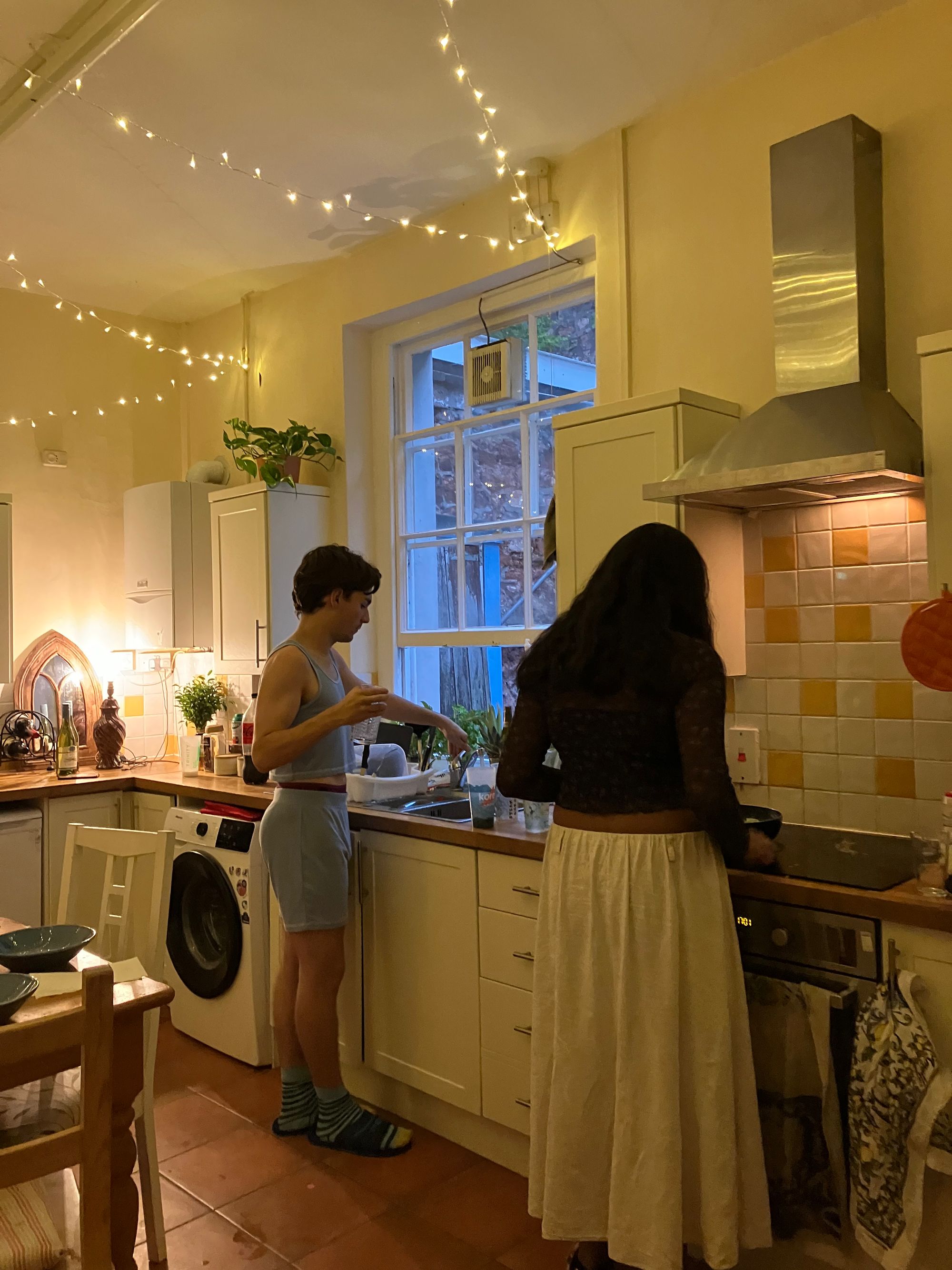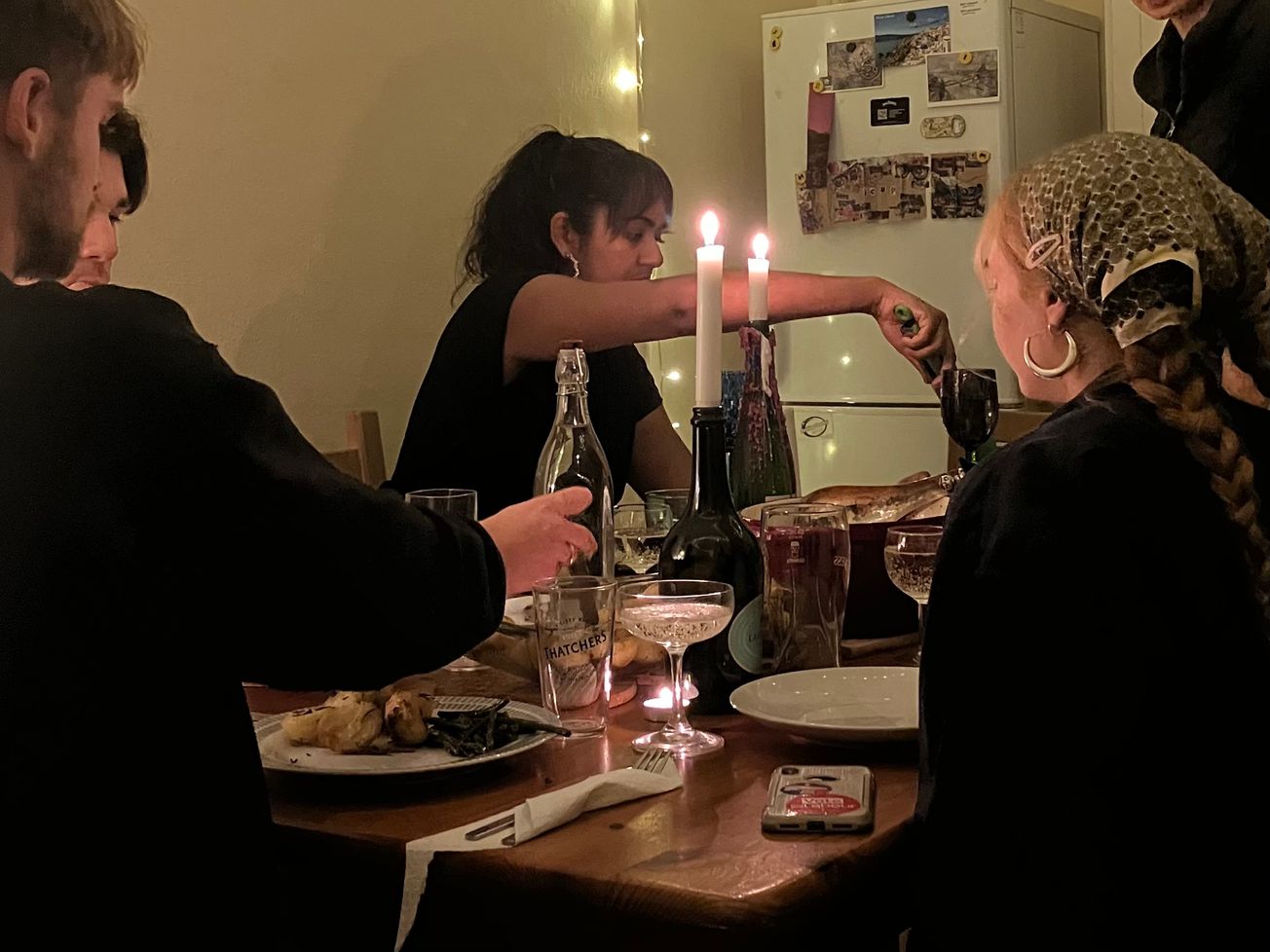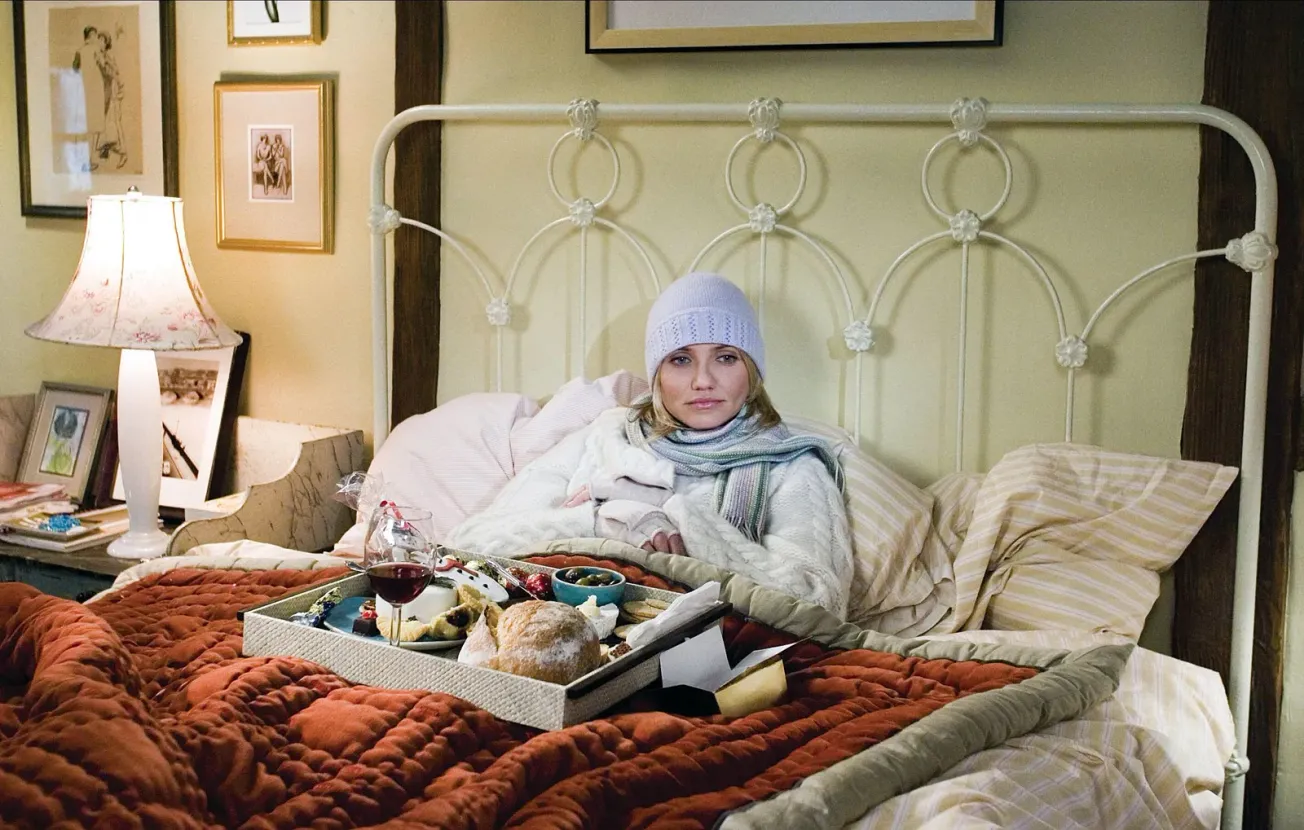By Isabelle Blakeney, Third Year English and History
Having grown up in a household where mealtimes were central to family life, communal cooking is one of the few things that I hold to be a sacred practice. Until I left home, the main two rules were: a) if you cook, you cook for everyone, and b) if you’re in the house, you eat dinner together. Though in my years of teen angst this rule felt unnecessary and slightly medieval, I’m now glad that it existed. Communal mealtimes, for me, are an act of grounding and connecting with the people you love. As a student, they help to maintain a routine, and when the budget’s tight they can be a great way of saving money. As we get deeper into the Autumn term and everything begins to feel unsettled, to cook and eat together, for me, is to find a moment of peace in an otherwise hectic student routine.
Communal cooking means many things to me. First and foremost, I take it as a past time. I love cooking, and I’ve been lucky enough to live in a house of foodies, so food is often a part of conversation. Hungover Sunday mornings have been spent collectively flicking through the pile of food magazines that I stole from my parents and dog-earing recipes that we want to try.

As mundane as it sounds, the mutual passion for food makes cooking exciting, and transforms it from a burden to a form of entertainment. Mealtimes as a social activity are an excuse to experiment and indulge in your cooking, whilst allowing guilt-free time for a gossip or catch-up. I’ve found that on entering my final year at university, my days of clubbing and parties are more or less a thing of the past. In their place, cooking has taken up its space in my social calendar. Inviting people around to cook after lectures has become commonplace and is fast becoming my favourite way to socialise.
To put thought and time into the food you eat lets your body know that you care about how you’re fuelling it. In the months of winter sloth, it’s easy to let this slip away, but to prioritise food is prioritising yourself. Communal cooking ties you to this priority; when feeding others, or when others are feeding you, you focus on what you’re putting into your body, and what you are eating is made with thought and love.

Cooking, for me, is also a love language. Last weekend, I came home from work to my flatmates cooking a Sunday roast. They had divvied up tasks, each party putting time and care into their respective dishes. As much as I love to cook, there are times when, like everyone, I’m just exhausted. So, to come home to dinner being prepared, and the people I love cooking and talking and laughing was so gratifying to me. Dolly Alderton wrote in her autobiography Everything I Know About Love about the small ways in which she is reminded of the love she holds for her friends. Cooking is when I feel closest to this- I learn who’s experimental, and who sticks to a recipe- who will use two bulbs of garlic in one dish and who will forget to put any in at all. The very act of cooking encases so much. It incorporates everything that we’ve learnt about food throughout our lives, so to be able to create and share something that holds so much about yourself, to me, is one of my most treasured acts of care.
So, as we slip further into the winter months, and for me and my friends the depths of our final year of university, communal meals are becoming increasingly frequent in our lives. The ritual of cooking and eating together, though seemingly minor, teaches us so much about one-another, and about ourselves. Ultimately, regardless of the deeper messages that communal cooking holds, it means that we almost always get to eat, in the words of my housemate, ‘really banging scran’.
Featured image: Isabelle Blakeney









